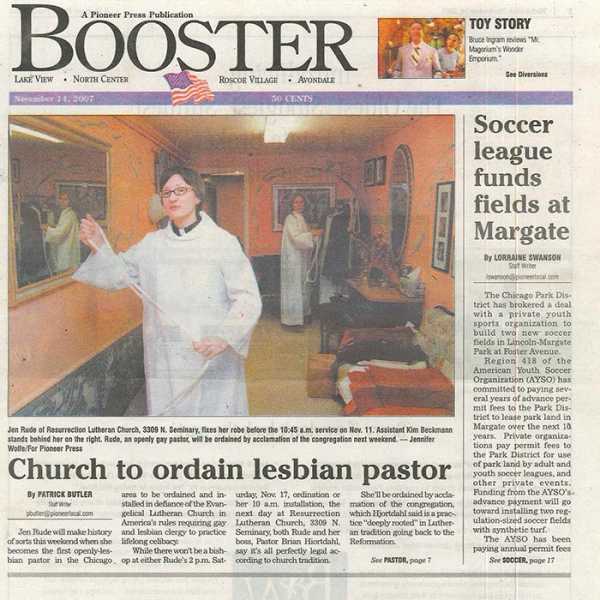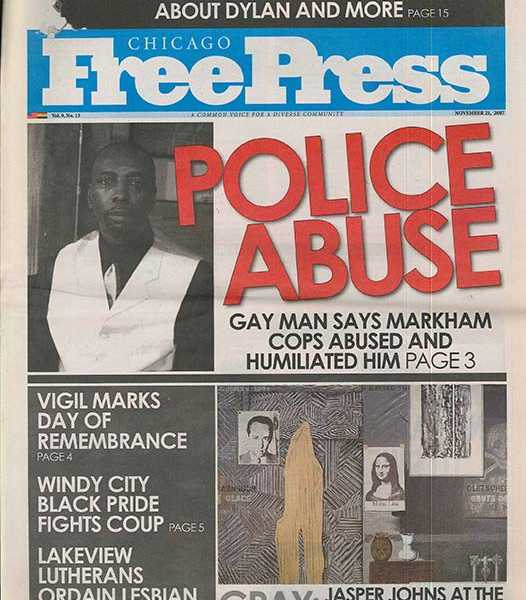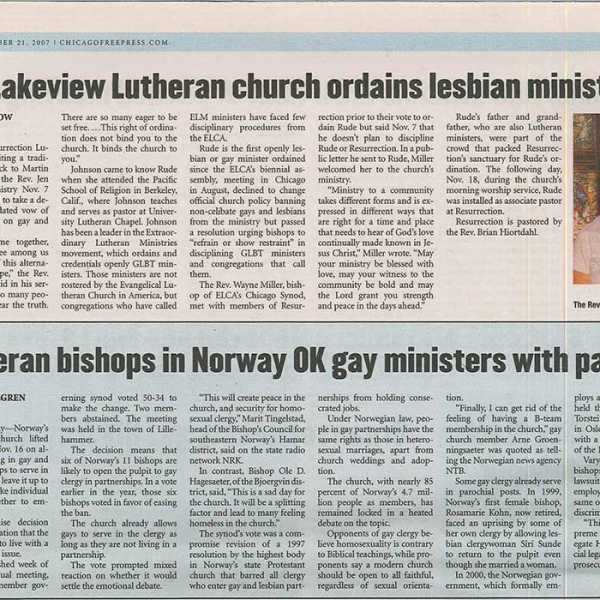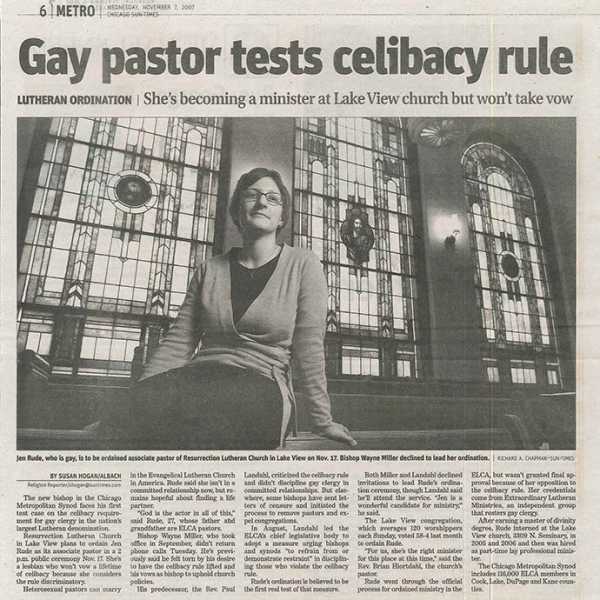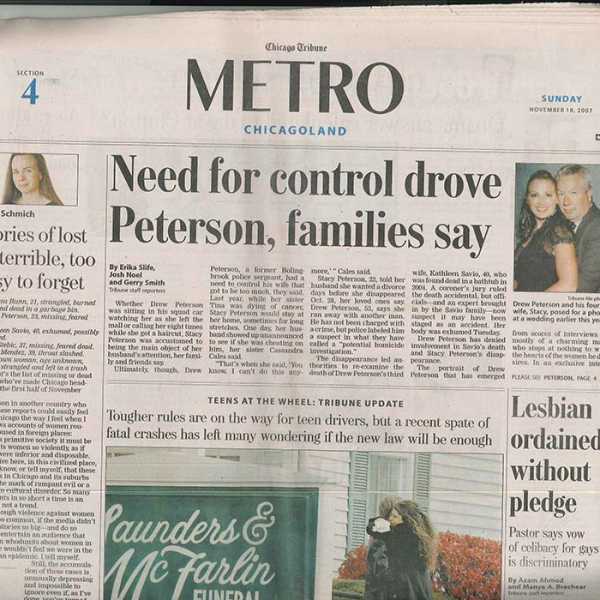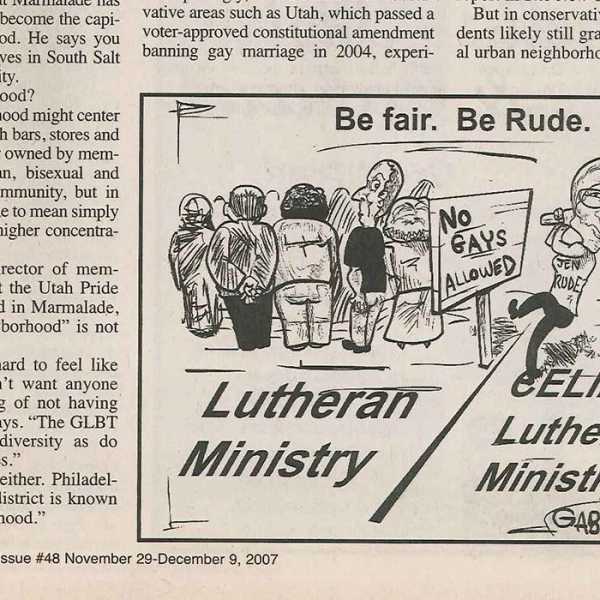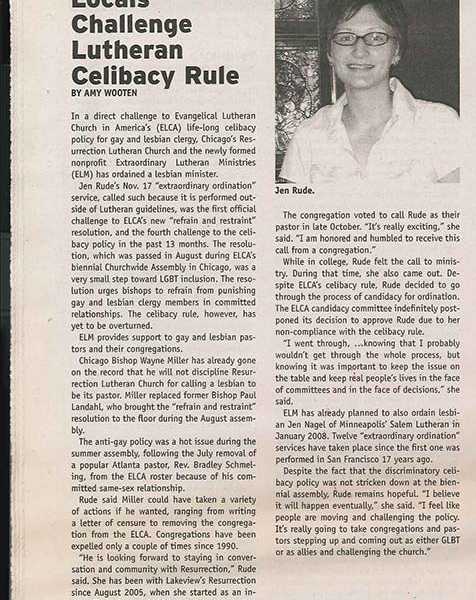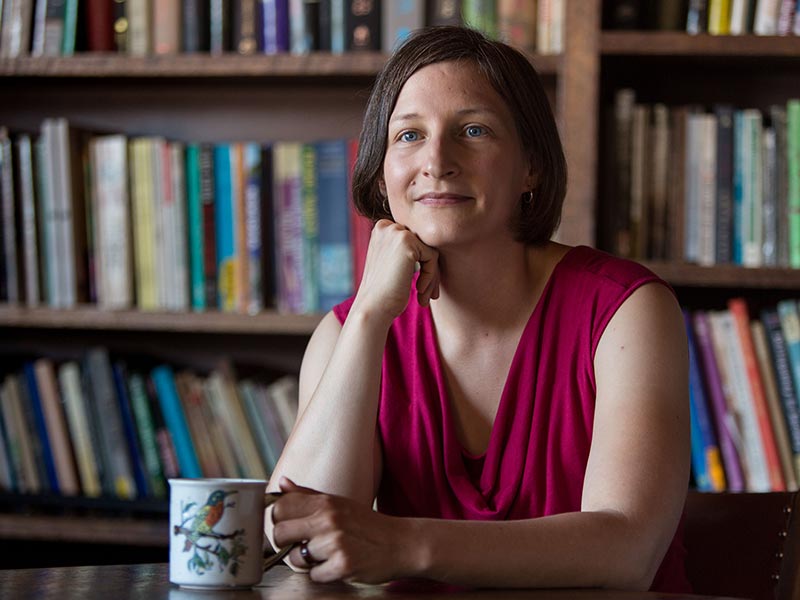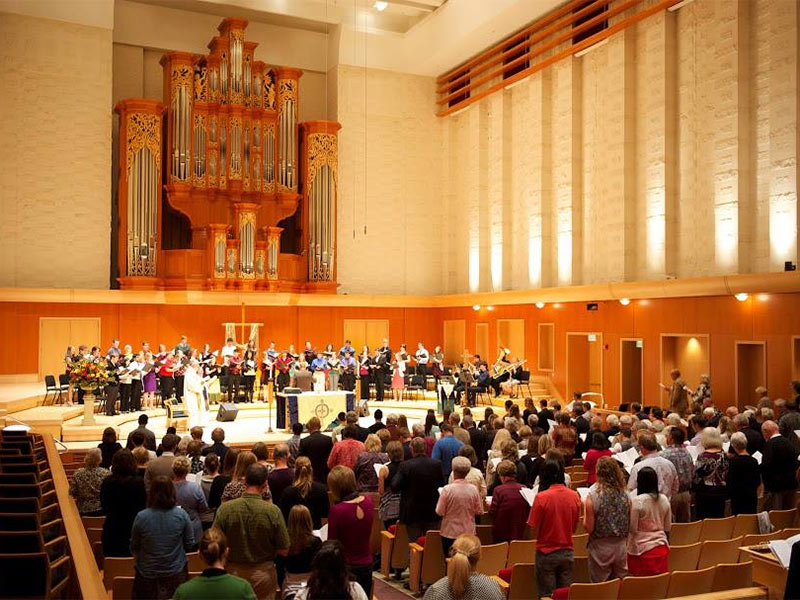The Rev. Jen Rude
The Rev. Jen Rude, who came to PLU following a career of advocacy, was drawn to university's inclusive mission
The Rev. Jen Rude smiled wide before more than 100 congregants, many weeping, at Chicago’s Resurrection Lutheran Church. With her father and grandfather — both Lutheran ministers — sitting proudly in the pews, Rude became the first ordained LGBTQ pastor after the Evangelical Lutheran Church in America urged bishops to not penalize congregations who violate the celibacy requirement for gay clergy.
An article the next day in the Chicago Tribune punctuated the historic shift: “Lesbian ordained despite refusal to take vow of celibacy.” Rude’s “extraordinary ordination” was held in 2007, two years before a policy change that allowed non-celibate LGBTQ pastors such as Rude — who has been with her spouse, Deb, for nearly a decade — to become official ELCA clergy.
Now, nine years after her historic ordination, Rude is making her rousing debut at Pacific Lutheran University as the first openly gay university pastor at a Lutheran college. She says her sexual orientation as a queer woman is an important part of her public identity.
“I hope more and more people are growing up seeing a female pastor, but I think seeing a LGBTQ pastor is still too rare in the Lutheran church,” she said. “There are so many messages in Christianity that are anti-LGBTQ, so I want to be a face and an embodied person that people can see and think ‘oh, maybe I can be part of that community.’”
Rude’s career has been defined by a passion for bringing diverse communities together, even if that means challenging traditional paradigms — as she did with her extraordinary ordination in Chicago at the age of 27. That meant Rude was ordained outside the requirements of the ELCA and thus recognized by her congregation as a pastor, but not by the ELCA. In 2011, her ordination was recognized by the ELCA and she became an official member of the church’s clergy.
“In our modern political climate, as well as the Lutheran church, there is often a sense of ‘let’s just all more or less be the same and get along,’” Rude said. “I’m more passionate about how we can bring our differences to the table to build and transform community.”
During a recent conversation at Northern Pacific Coffee Co., a coffee shop near PLU’s campus, Rude said she’s eager to lend that passion to PLU.
“I was shaped by the values of a liberal arts education at an ELCA-affiliated university,” she said. “I benefited from learning to ask questions, living into my values, engaging difference, serving others and living in community. It was hard, and at times, I desperately needed a place of grace. I feel called to help create that space — physically and spiritually — within the PLU community.”
As she mentors PLU students, Rude says she plans to draw on her experience enduring the controversy that surrounded her ordination. She believes she is a more dynamic mentor and minister because she was forced to navigate years of discriminatory obstacles and begin her career as a Lutheran minister from outside the ELCA looking in.
“That experience helped shape my identity, as not just a pastor, but a pastor who is a queer person and is concerned with social justice issues,” Rude said. “I became involved in other justice work because of my own experience of being pushed to the sidelines. That all shapes the kind of pastor I hope that I am, and the pastor I plan to be at PLU.”
Rude began to feel called to serve the Lutheran church while studying religion at Augustana University, where she graduated in 2002, but at that time she didn’t think pastoral work could be a possible career track. She assumed that she would become a religion professor, since the Lutheran church didn’t ordain LGBTQ individuals at the time.
Once she enrolled in the Master of Divinity program at the Pacific School of Religion, she connected with a community of openly gay and lesbian pastors serving Lutheran communities across the country. The group inspired and empowered her to pursue ministry.
“They were living as though the world had already changed,” she said, “serving in ministry despite the policies of the church and being their full selves.”
Rude completed her master’s degree in 2005, at a time when the ELCA allowed LGBTQ pastors to be ordained, so long as they pledged celibacy — a requirement not applied to heterosexual pastors. Rude refused to comply with the discriminatory policy, which ultimately led to news headlines and the emotional ceremony in November 2007.
Before being called to PLU in May, Rude was program director for Extraordinary Lutheran Ministries (ELM), a nonprofit organization that grew out of the network of LGBTQ Lutheran pastors she joined while in seminary. There she led programs committed to expanding opportunities for LGBTQ pastors.
ELM Executive Director Amalia Vagts, Rude’s longtime friend and colleague, has no doubt that Rude will be an excellent fit at PLU.
“Jen’s authentic and joyful spirit is a perfect fit for college students, staff and faculty,” Vagts said. “She’s passionate about developing leaders, always looking to find the right way to engage someone and help them discover or deepen a gift or interest of theirs.”
Rude also has served as a colleague in ministry at Grace Lutheran Church in Evanston, Illinois, an associate pastor at Resurrection Lutheran Church in Chicago, and as youth outreach minister for The Night Ministry in Chicago, where she provided pastoral care, crisis response and advocacy in an interfaith and multicultural setting for young adults experiencing homelessness.
Rude says she was enchanted with PLU’s philosophy early in the process that called her to campus. She was struck by remarks from President Thomas W. Krise, in one of her interviews, about his aspirations for an inclusive campus.
“He told me ‘if we can be a school that’s welcoming to Muslim students and welcoming to transgender students, then I feel like we’re on the right path,’” Rude said. “I felt excited that the leadership at PLU wants to be pushing the envelope and be on the progressive edge when it comes to the welcoming and belonging of students.”
Rude understands that a call to PLU is different than a call to an entirely Lutheran community. She looks forward to helping guide the faith journeys of PLU students with a wide variety of spiritual convictions.
“I’m an ELCA pastor, but I definitely see the call to PLU as a call to the whole university, which means that it is ecumenical and interfaith,” she said. “That also includes people who are unaffiliated, don’t have a faith tradition or have a life philosophy of some sort that’s maybe not an organized religion.”
The Rev. Richard Jaech, bishop of the Southwestern Washington Synod and member of PLU’s Board of Regents, believes Rude is uniquely suited to lead PLU’s diverse faith community and maintain PLU’s inclusive identity.
“Pastor Rude’s experience working in congregational and community ministry settings that welcome and honor all, regardless of gender, racial, ethnic, sexual orientation or socioeconomic differences, makes her an ideal pastor to broaden the role of campus ministry,” Jaech said.
Rude’s unique experiences taught her that the most constructive way to assist someone facing a challenging circumstance is to walk with them. She plans to do that as she meets students “where they are at” on campus.
“The people I felt most supported by were the people who were willing to walk in solidarity with me,” she said. “I plan to be a visible presence on campus, and not just if you go to chapel.”


